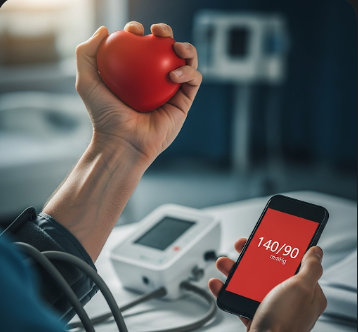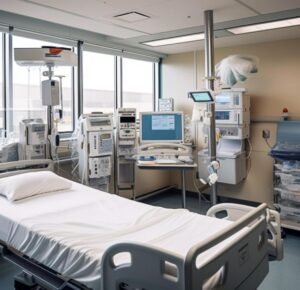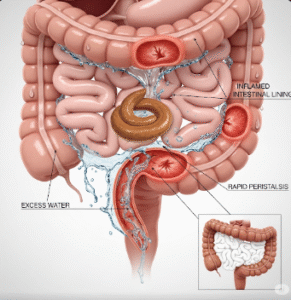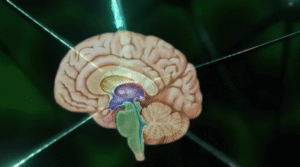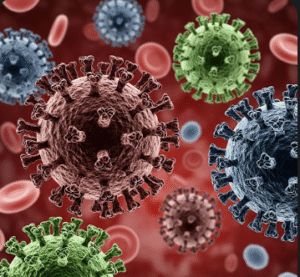Overview
High blood pressure, medically known as hypertension, is a chronic condition in which the force of blood against the walls of the arteries is persistently elevated. Hypertension is a major risk factor for heart disease, stroke, kidney disease, and other cardiovascular complications. In Korea, it is a common health concern, particularly among adults over 40, with lifestyle factors, aging, and genetic predisposition contributing to its prevalence.
Korean healthcare facilities provide comprehensive hypertension management, including routine screening, lifestyle modification programs, pharmacological therapy, and advanced monitoring systems to prevent complications and improve quality of life.
What is High Blood Pressure?
High blood pressure occurs when systolic blood pressure (pressure during heartbeats) or diastolic blood pressure (pressure between heartbeats) consistently exceeds normal levels.
- Normal: Below 120/80 mmHg
- Elevated: 120–129/<80 mmHg
- Stage 1 Hypertension: 130–139/80–89 mmHg
- Stage 2 Hypertension: ≥140/90 mmHg
Hypertension is often asymptomatic, earning it the nickname “silent killer,” but prolonged high blood pressure damages blood vessels, the heart, and other organs.
Symptoms
Most people with high blood pressure do not exhibit symptoms until complications develop. When symptoms appear, they may include:
- Headaches, often in the morning
- Dizziness or lightheadedness
- Blurred vision
- Chest pain or tightness
- Shortness of breath
- Nosebleeds in severe cases
- Fatigue or confusion in advanced hypertension
Hypertension is frequently discovered during routine health check-ups or screenings rather than through symptoms alone.
Causes
High blood pressure can be classified as:
Primary (essential) hypertension:
- No identifiable cause; develops gradually due to genetics, lifestyle factors, and aging
- Risk factors include obesity, high salt intake, sedentary lifestyle, and stress
Secondary hypertension:
- Caused by underlying conditions such as:
- Kidney disease
- Adrenal gland disorders
- Thyroid disorders
- Obstructive sleep apnea
- Certain medications: Steroids, birth control pills, or NSAIDs
Other contributing factors include excessive alcohol intake, smoking, high cholesterol, and chronic stress.
Risk Factors
- Age: Risk increases with age, particularly after 40
- Family history: Genetic predisposition to hypertension
- Obesity: Excess body weight strains the heart and arteries
- High-sodium diet: Common in processed and traditional foods
- Sedentary lifestyle: Lack of exercise contributes to weight gain and vascular stiffness
- Chronic stress: Persistent stress elevates blood pressure
- Excessive alcohol or tobacco use
- Existing medical conditions: Diabetes, kidney disease, or high cholesterol
Complications
Untreated or poorly controlled high blood pressure can lead to serious and potentially life-threatening complications:
- Heart disease: Heart attack, left ventricular hypertrophy, or heart failure
- Stroke: Increased risk of ischemic or hemorrhagic stroke
- Kidney damage: Chronic kidney disease or kidney failure
- Vision problems: Hypertensive retinopathy or blindness
- Aneurysm: Weakening of blood vessel walls leading to rupture
- Cognitive decline: Increased risk of dementia or vascular cognitive impairment
Prevention
Preventive strategies focus on lifestyle modification and regular health monitoring:
- Balanced diet: Low-sodium, high-fiber, and rich in fruits and vegetables
- Regular physical activity: At least 150 minutes of moderate exercise per week
- Weight management: Maintain a healthy body mass index (BMI)
- Stress reduction: Mindfulness, yoga, meditation, or counseling
- Avoid tobacco and limit alcohol intake
- Regular monitoring: Home blood pressure checks and routine medical visits
- Medication adherence: Following prescribed therapy if diagnosed
Treatment Options in Korea
Diagnosis
Korean healthcare providers use advanced diagnostic tools for accurate hypertension assessment:
- Blood pressure measurement: Multiple readings at rest, often using automated monitors
- Ambulatory blood pressure monitoring (ABPM): 24-hour monitoring for accurate diagnosis
- Blood tests: Assess kidney function, electrolytes, and cholesterol levels
- Electrocardiogram (ECG): Evaluate heart strain or arrhythmias
- Echocardiography: Detect structural heart changes
- Imaging: Ultrasound or CT scans for vascular health assessment
Medical Management
- Antihypertensive medications: Including ACE inhibitors, angiotensin II receptor blockers (ARBs), beta-blockers, calcium channel blockers, and diuretics
- Combination therapy: Sometimes multiple drugs are needed for effective control
- Regular monitoring: Blood pressure tracking and medication adjustments
Lifestyle and Dietary Interventions
- Dietary approaches to stop hypertension (DASH diet): Rich in potassium, magnesium, and fiber
- Exercise programs: Aerobic activities, strength training, and flexibility exercises
- Salt reduction: Limit daily sodium intake to under 2,300 mg, ideally 1,500 mg
- Weight loss programs: Personalized plans by dietitians or wellness centers
- Stress management: Relaxation techniques integrated into daily routines
Supportive Care
- Patient education: Understanding blood pressure goals and warning signs
- Regular follow-ups: Ensuring treatment adherence and monitoring complications
- Community health programs: Hypertension awareness campaigns and preventive screenings
Prognosis
The prognosis of high blood pressure in Korea is excellent with early detection, lifestyle modifications, and adherence to treatment:
- Blood pressure control reduces the risk of heart attack, stroke, and kidney disease
- Patients who maintain a healthy lifestyle and follow medication plans can live a normal lifespan with minimal complications
- Advanced healthcare systems and widespread public health initiatives in Korea support early detection and effective long-term management of hypertension

